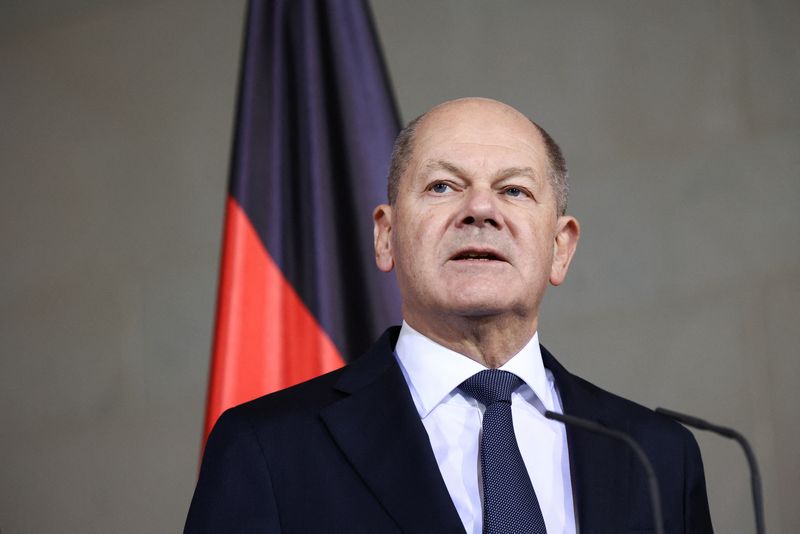BERLIN (Reuters) – German Chancellor Olaf Scholz on Wednesday asked parliament for a confidence vote on Dec. 16, paving the way for snap federal elections after the collapse of his coalition.
Policymaking in Europe’s biggest economy has largely stalled since Scholz’s fractured coalition of the Social Democrats (SPD), the Greens and the neoliberal Free Democrats (FDP) collapsed last month, leaving him in charge of a minority government.
If, as expected, Scholz loses the confidence vote, he must ask the president to dissolve parliament, triggering new elections. Scholz agreed with the opposition that the elections will be held on February 23.
“In a democratic country, it is the voters who determine the course of future politics,” Scholz said in a brief statement to reporters.
“In elections they will decide how we respond to the big questions that face us. Let us have the confidence to invest vigorously in our future as a strong country.”
Scholz called on MPs to work together in the remaining window before the election to put measures on the agenda. These include keeping a cap on electricity prices to help Germany’s struggling industry, as well as tackling the fiscal deficit and raising child benefits.
“This is about a few but very important decisions that cannot be postponed,” Scholz said in Berlin shortly after he submitted his request for a confidence vote to parliament.
Scholz cited recent meetings with representatives of Volkswagen (ETR: ) and Ford (NYSE: ) , which are planning drastic cost-cutting measures.
“Everyone is warning that electricity costs should not continue,” Scholz said.
French Prime Minister Michel Barnier lost a vote of no confidence last week, underscoring the unusual degree of political instability plaguing both of Europe’s top powers.

Polls show the opposition conservatives are on course for victory in the federal election, with a poll on Monday putting them at 31%, followed by the far-right Alternative for Germany at 18%, Scholz’s SPD at 17% and the Greens at 13%.
The FDP and the newly formed Sahra Wagenknecht Alliance are both polling at the 5% threshold to enter parliament, but analysts say voters could shift quickly because they are less loyal than they used to be.
